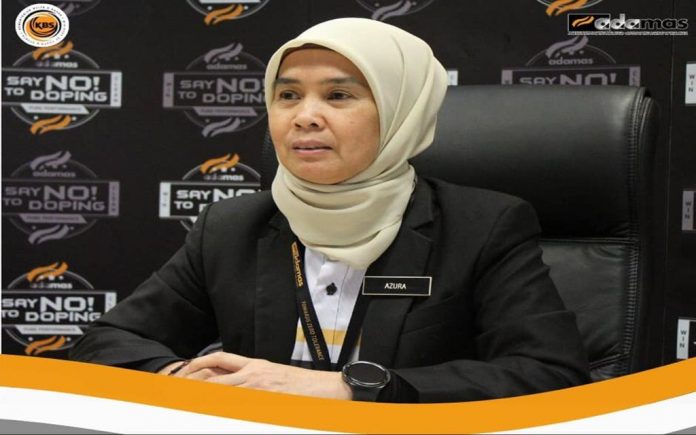KUALA LUMPUR: Ninety per cent of the national athletes bound for the July 23-Aug 8 Tokyo Olympics have undergone the drug test and all of them are dope-free, said the Anti-Doping Agency of Malaysia (ADAMAS).
Its director, Azura Abidin said that, so far, 27 out of the 30 athletes had completed their doping tests before leaving for Japan.
She said that of the remaining three, one is still undergoing quarantine after returning home from an overseas competition while the other two, who are overseas, underwent drug testing conducted by the International Sports Federation (IF).
“All the athletes are required to undergo the doping tests, either under their respective NADOs (National Anti-Doping Organisations) or IFs. We started conducting doping tests on the athletes in May.
“It is based on ADAMAS’ Risk Assessment and Testing Distribution Plan based on the International Standard for Testing and Investigations (ISTI) issued by the World Anti-Doping Agency (WADA),” she told Bernama today.
She also reminded the athletes that they were fully responsible for any substance taken, whether it is an attempt to take or is found in their (body) system.
“If any banned substances or metabolites are found in their samples, the athletes will be held responsible and it will be up to the athletes to prove they are not guilty,” she said.
Asked about the risk of sabotage, Azura said WADA had introduced a whistleblower policy which gave athletes rights if there was an element of sabotage or activities involving doping symptoms.
According to her, the policy, among others, provided education on their rights to protect themselves such as justice to contest, freedom of speech and protection of personal rights.
If athletes feel threatened, they have the right to lodge a report with ADAMAS and, indirectly, they and their information will be kept safe and confidential in accordance with the Whistleblower Protection Act 2010 (Act 711),” she said.
She said ADAMAS had also continued with its anti-doping awareness and education programme virtually due to the COVID-19 pandemic.
This included the Anti-Doping Education and Learning (ADEL) and outreach programmes as well as online education involving registered drugs and the side effects of steroid intake.
Malaysia will be represented by 30 athletes in 27 events involving 10 sports at the Tokyo Olympics.
The first batch of athletes, comprising four sailors, left for Tokyo on July 8, while the second batch will leave on July 17 and the third and final batch will depart on July 25.
— BERNAMA


